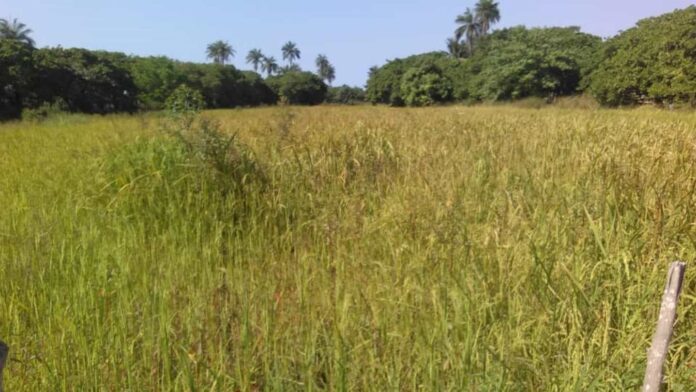By Madiba Singhateh
The Ministry of Agriculture on Wednesday, June 11, launched a two-day validation workshop for The Gambia’s National Rice Seed and Variety Promotion Plan under the Reverse Linkage Regional Rice Value Chain Development Project. The initiative seeks to strengthen the national rice seed system by developing a comprehensive seed roadmap and promoting improved rice varieties.
The program’s main objectives include assessing the current status and challenges of rice seed production and distribution in The Gambia, identifying strategic priorities, and outlining actions to develop a robust seed system. It also aims to craft a variety promotion plan with communication strategies, stakeholder roles, and capacity-building measures to support effective implementation.
According to the Ministry, the expected outcomes include a detailed national rice seed roadmap with timelines, production targets, and institutional responsibilities, along with a promotion plan identifying priority rice varieties, dissemination methods, and strategies for farmer engagement.
In his opening remarks, Agriculture Minister Demba Sabally emphasized the importance of effective communication in showcasing the sector’s progress, stating: “We need more communication because we are investing a lot and doing better than many sectors, but that progress is not always visible to the public.”
Commending the Regional Rice Value Chain initiative, the Minister said, “What this program has done is not fiction. I was there during the distribution of fertilizers, tractors, herbicides, and other critical inputs provided to farmers. These efforts deserve recognition.”
He reiterated the critical role of rice in the national diet and food security: “Rice is our staple and the most important food crop in The Gambia. Despite its centrality, domestic production continues to fall short of national demand, leaving us heavily reliant on imports.”
Highlighting the core challenge, Minister Sabally said: “One of the major barriers to increasing local rice production is the limited availability and adoption of quality-certified seeds of improved rice varieties. Despite efforts by my Ministry and development partners, the seed system remains underdeveloped, with gaps in production, distribution, quality control, and private sector engagement.”
He explained that the Reverse Linkage Program under the Islamic Development Bank (IsDB)-funded Regional Rice Value Chain Development Project is designed to tackle these specific challenges. “The program promotes South-South cooperation, allowing member countries to exchange technical knowledge and expertise for sustainable development. In this case, AfricaRice has been chosen to lead the technical aspects of the seed system reform across the five participating countries,” he noted.
The Minister assured participants of continued government support for rice seed development. “Our projects will continue to support the production and distribution of quality rice seeds across all regions and ecologies. The rice seed roadmap and promotion plan will outline the demand, production methods, priority varieties, quality assurance, and private sector engagement — all essential components of a sustainable seed system,” he said.
He concluded by expressing optimism that a well-functioning seed system would guarantee a steady, affordable supply of high-quality rice seeds to farmers, ultimately enhancing food security and reducing import dependency.


















